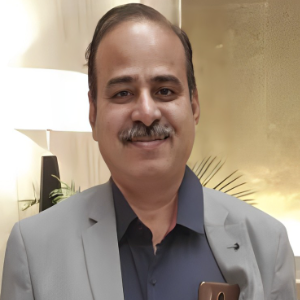Skin healing technologies have revolutionized the fields of dermatology and cosmetology, offering innovative solutions for various skin concerns. These advancements include laser therapies, such as fractional CO2 and Erbium lasers, which promote collagen production and accelerate the healing of scars and blemishes. Additionally, platelet-rich plasma (PRP) therapy harnesses the body's own healing properties to rejuvenate skin and improve texture.
Topical treatments infused with growth factors and peptides are also gaining traction, enhancing skin regeneration and hydration. Emerging technologies, like 3D bioprinting of skin grafts, are set to transform wound care and tissue engineering, providing personalized solutions for patients. With these advancements, practitioners can deliver targeted treatments that not only address aesthetic issues but also promote overall skin health, ensuring a more youthful and resilient complexion.

Ravi M Rathod
KMCRI, India
Dechelette Corinne
La Peau Autrement, France
Irina Sergeeva
Novosibirsk State University, Russian Federation
George Sulamanidze
Plastic Surgeon at Clinic of Plastic and Aesthetic Surgery and Cosmetology TOTALCharm, Georgia
Nino Tsamalaidze
Ltd Karabadini+, Georgia
Lina Petrossian
California University of Science and Medicine, United States
Surajbala Khuraijam
Manipur Health Services, India
Shrutimita Pokhariyal
Symbio, India
Yasser Mohammed Hassanain Elsayed
Egyptian Ministry of Health, Egypt



Title : Paraneoplastic Autoimmune Multiorgan Syndrome or PAMS: Paraneoplastic pemphigus revisited
Sergei A Grando, University of California Irvine, United States
Title : Modern non-invasive methods for in vivo assessment of skin
Georgios N Stamatas, SGS, France
Title : Personalized and precision dermatology through the view of biodesign-inspired translational & data-driven applications: Revolutionary skin treatments for every concern in clinical dermatology integrating skin care experts and consumers
Sergey Suchkov, N.D. Zelinskii Institute for Organic Chemistry of the Russian Academy of Sciences, Russian Federation
Title : The next generation of threads: Lifting, volumization, and biostimulation in one powerful triple action
George Sulamanidze, Plastic Surgeon at Clinic of Plastic and Aesthetic Surgery and Cosmetology TOTALCharm, Georgia
Title : Lymphoproliferative diseases in the practice of a dermatologist
Irina Sergeeva, Novosibirsk State University, Russian Federation
Title : Art, skin, and dermatology: Interdisciplinary perspectives
Dechelette Corinne, La Peau Autrement, France
Title : Comparative efficacy of omalizumab and dupilumab in children with Chronic Spontaneous Urticaria (CSU): A retrospective cohort analysis
Molynna Nguyen, University of Toledo, United States
Title : "Mirror mirror on the skin” — A low-cost community strategy to reduce melanoma disparities in Washington, D.C.
Kayla Sampson, Georgetown University School of Medicine, United States
Title : Vitiligo: Not just an aesthetic disorder
Mateja Starbek Zorko, University Medical centre Ljubljana, Slovenia
Title : Personalized and Precision Medicine as a unique avenue to have the healthcare model renewed to secure the national biosafety: Advanced skincare solutions in individualized cosmetology, reconstructive plastic surgery and the modern beauty
Sergey Suchkov, N.D. Zelinskii Institute for Organic Chemistry of the Russian Academy of Sciences, Russian Federation